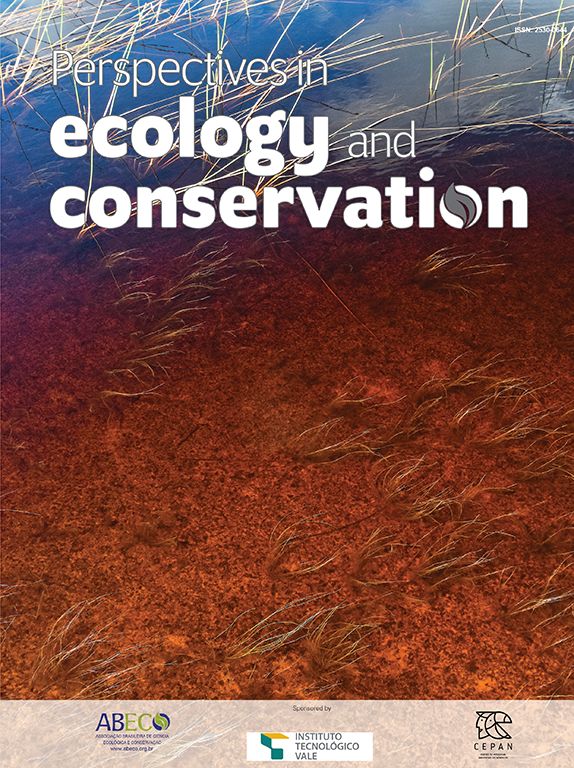Sustainable agendas are often threatened by divergent political viewpoints. This was evidenced by the January 2023 coup attempt in Brazil. The 2030 Sustainable Development Agenda faces various challenges and relies on safeguarding institutions and democracy itself. For megadiverse countries such as Brazil, strengthening the nexus between democracy and governance is fundamental.
On January 8th, 2023, supporters of Brazil’s former president Jair Bolsonaro invaded the headquarters of all three branches of the federal government in a failed coup attempt (Fig. 1). This has given urgency to understanding the value and role of democracy, including its role in environmental sustainability. Brazil’s current democratic institutions had not yet experienced an act of this gravity, and the presidential administration that took office on January 1st, 2023 responded quickly to the coup attempt (Phillips, 2023). Preliminary investigations have suggested the involvement of many sectors in financing these acts, including groups that oppose environmental policies (Phillips, 2023), such as the group known as the “rotten apples of agribusiness” (Rajão et al., 2020). The investigation and punishment of the groups involved is fundamental for the future of democracy and consequently of Brazilian environmental policy for the coming years. This includes an effective participation of Brazil in the world's 2030 Sustainable Development Agenda and the Convention on Biological Diversity.
The coup attempt contrasts with recent positive news in Brazil. The new presidential administration of Luiz Inácio Lula da Silva (“Lula”) has created new ministries such as Racial Equality and Original Peoples. Lula’s government agenda gives a clear sign of the intent to implement policies to reduce poverty, inequalities and to strengthen land rights and health, which are measures strongly aligned with the Sustainable Development Agenda. On the other hand, Lula’s administration faces many challenges (Li and Reuveny, 2006; Peres et al., 2022). Reconciling food production, the basis for global food security, biodiversity conservation and environmental preservation is an absolute necessity. This depends on scientific and technological development and understanding among different segments of society in an agenda that promotes fair and inclusive prosperity. Food security and biodiversity conservation are also essential for achieving the ambitious target of the One Health approach. Trans-ministerial dialogue will be fundamental for building a synergy among the sectors, and we believe that environmental issues are central to this effort, for example for synergies between food production, food security and protection of biodiversity.
Relationships among democracy, governance and biodiversity conservation are complex and unstable in many western countries. Evidence generally indicates that democratic countries that have strong institutions and multi-scale governance are more effective in implementing environmental policies (Fearnside, 2023), including those aimed at reducing deforestation (Lima and Buszynski, 2011; Carvalho et al., 2019). During transitions between presidential administrations there is often a relaxation of environmental regulations, which increases deforestation and other forms of damage (Salazar et al., 2022). The general idea is that democracy with popular participation and functioning institutions can control corruption, implement constructive legislation and ensure government effectiveness in various sectors, including the environment (Sommer, 2022). These relationships are largely mediated by economic growth (Gaarder and Vadlamannati, 2017) and by movements that influence values and political agendas on environmental issues. Wars, political coups and terrorism can strongly impact these relationships, with negative consequences for national policies and actions on conservation, particularly in the fragile young democracies in many Latin American countries (Hakim and Lowenthal, 1991; Negret et al., 2019). Some of these countries are among the top 10 megadiverse countries on the planet, such as Brazil and Colombia (Negret et al., 2019). The recent attempted coup in Brazil is an example of this critical imbalance.
Terrorism and dictatorial regimes are marked by policies that favor individual groups (often specific wealthy families) at the expense of environmental protection. Immature democracies can also lead to common tragedies, partially due to favoring corporate interests (Fearnside, 2023). As scientists working on environmental issues in Brazil, we warn that the relationships among democracy, governance and the environmental agenda need to be strengthened. This can only be accomplished with the strengthening of democratic institutions and popular involvement through awareness, voting and participation. A call similar to this one was published when Brazil was already in a deep crisis after President Dilma Rousseff’s impeachment and was about to elect Bolsonaro (Dobrovolski et al., 2018). From then on, the situation highlighted here has worsened. Brazil’s recently installed presidential administration has positive prospects for consolidating and bridging sectors, but persistent threats demand that we stay vigilant.
Fighting the dissemination of fake news adds to the equation negatively, and Brazil is an unfortunate example. Fake news and disinformation were used as strategies by Bolsonaro, following the example of former US president Donald Trump (Froehlich, 2020). During the 2019–2022 administration of Jair Bolsonaro, denialism was strengthened to dangerous levels and undermined the Brazilian government’s previous environmental advances.
National and global societies need to safeguard the public policies and instruments that have been created to protect biodiversity and to achieve other sustainable development goals in megadiverse countries. As lessons learned from recent developments in Brazil, environmental regulations and legislation need to be well protected against sudden changes. For example, the opportunity to open indigenous lands to mining should not exist, with the recent Yanomami humanitarian catastrophe being a clear example (John and Pedroso, 2023), nor can deforestation be allowed to increase in the Amazon and other key regions. Protection of life and long-term survival should be matters of state rather than management strategies that can change with each presidential administration. The only way that environmental justice can be achieved and maintained over the long term in megadiverse countries is to safeguard institutions and protect against unexpected changes affecting democracies. We must be aware of these red lines as this is the only way that societies can protect themselves against increasing threats now being perpetuated through fake news on social media.
We thank José Diniz-Filho for constructive comments on the manuscript. We also thank CNPq, Fapemig and MCTI for grant supports.








